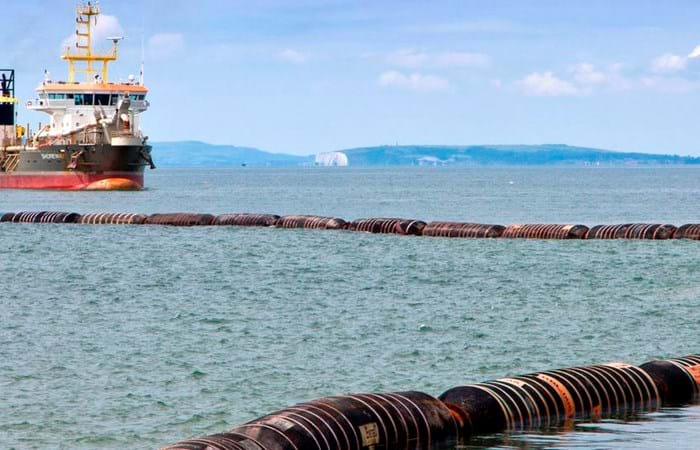Van Voorden Castings has been a supplier of wearing parts for dredging ships for over 30 years. 'Over the past few years we, together with Boskalis, increasingly came to the realization that we were destroying value by treating worn-out parts as scrap metal. Once you remove the parts that have worn away, what is left of things like pump casings and impellers is completely reusable. Together we have developed a process for this. All the old parts come back to the Netherlands and are cut down into small lumps and then melted down in our factory and turned into new products,' explained Jac Meeuwissen, director of Van Voorden in Zaltbommel.
Creating value with cast iron wearing parts
'Currently an average of 200 tonnes of cast iron and cast steel is reused every year. Together we have made a huge leap forwards in this.' With his manufacturer’s hat on, Meeuwissen also finds the development interesting bearing in mind the expected shortages of raw materials in the years ahead. 'It’s a win-win situation. Boskalis’ wear-proof parts are made of 100% reusable high-grade alloys; to us as a manufacturer those are valuable materials. Which is why this chain initiative is a great example of sustainable business that adds economic value and at the same time combats waste.'
New lease of life for old floating pipelines
The challenge that recycling company Beelen faces is how to give old materials a new lease of life, a prospect now also in store for Boskalis’ old floating pipelines. Beelen takes them in and dismantles them in as sustainably as possible according to the Lansink ladder. Priority is given to the most environmentally friendly processing method. Rubber is used for new useful applications; steel is melted down in the blast furnaces; other residual materials, such as insulation, are used for power generation. 'We guarantee that the residual material does not end up in the incinerator or in a landfill site,' said Peter Jongmans, director of Beelen Rotterdam. Boskalis wants to be able to track the product flows as closely as possible and will use random checks to determine whether dismantling took place in accordance with the agreements. Every floating pipeline has a unique number and Beelen compiles a report for each floating pipeline showing what method was used to process or recycle the materials, including photographic documentation. According to Jongmans this is a unique approach: 'It costs Boskalis more money to bring the floating pipelines to the Netherlands than to dismantle them in situ elsewhere in the world, but this is a conscious choice by the company. Boskalis wants to make sure that the recycling process is genuinely sustainable. They are really leading the field in this.'
